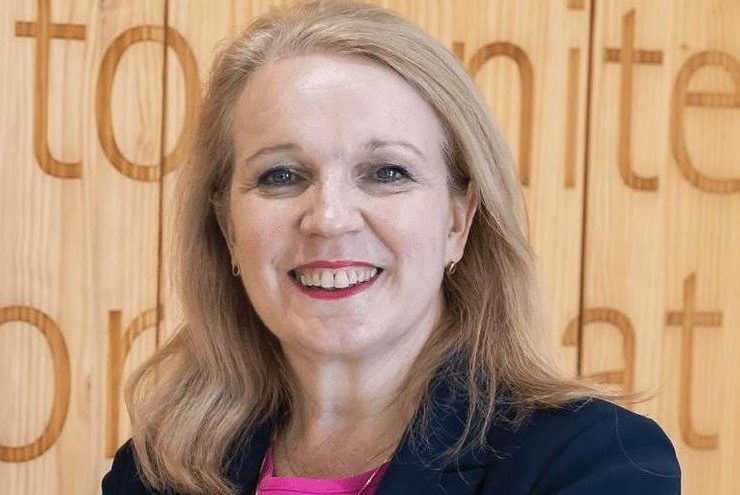"Barcelona is a city that competes with the world's leading cities" by Daria Shornikova

Daria Shornikova, participant in Barcelona Global’s Leadership and City program and specialist in storytelling and communication. She previously served as Brand & Communication Director at ISPD and currently helps companies connect with their audiences through brand narratives. Her career in cultural management, innovation, and communication has also led her to be a TEDx speaker.
What do you expect from the Barcelona of 2040?
The key word is magnitude. I would like to see a Barcelona that has leaped into the future, experiencing new milestones on a scale comparable to the '92 Olympics. A technological and cultural capital, ambitious yet livable. A city that has managed to preserve its traditional heritage, harness its potential as a global capital, and embrace the diversity of its residents, capitalizing on all three to create a thriving social and business dynamic.
With which city would you compare Barcelona to?
Barcelona is a city that competes with the world’s leading cities while maintaining its local charm. As a port city, it shares characteristics with many others: cultural fusion, gateways, hubs of (inter)exchange, a constant breeding ground for new ideas. Today, I see Barcelona as comparable to three other port cities. To Antwerp, for its medieval heritage, its vibrant art and fashion scene. It offers the pleasure of wandering through small streets, discovering galleries, shops, and taverns that hide true treasures. To San Francisco, for being a magnet for tech talent and dreamers in general. It has also long been a major hub for activism and DEI (Diversity, Equity, and Inclusion) movements. And to my native Saint Petersburg, for the romance and nostalgia it exudes, for being a counterpoint to the state capital, and for being a city more about deep conversations in bars than dancing in clubs.
Which city model do you think Barcelona should resemble?
I believe Scandinavian capitals have managed a balance between tradition, innovation, aesthetics, and coexistence. All adapt to changes very quickly, integrating updates for their services in a seamless manner ,respecting the environment and the needs of its inhabitants. A great example would be Oodi, Helsinki’s Central Library, or the city's AI Register. Initiatives like these create spaces to foster a conscious, collaborative, and co-responsible society. All of this encourages people to take an active role in helping their cities and communities thrive. Of course, there are significant differences due to climate and culture, but these dynamics could help Barcelona take a qualitative leap forward.
What is the main challenge Barcelona must address in the coming years?
Leaving aside the “usual suspects,” the integration of international talent and immigration in general seems to me one of the key factors in achieving this vision for Barcelona in 2040. Barcelonians by choice should take responsibility for their participation and the mark they leave on the city, contributing to its prosperity, while locals should open doors and act as guides. The division between those from here and those from there still exists at almost every level, which often prevents newcomers from truly feeling that the city is theirs. This carries the risk of falling into provincialism and reinforcing ghettos. We still haven't achieved the evolution of this mindset. Also, Barcelona needs to elevate the quality of its tourism. Here, I would use Vienna as a reference.
¿Qué turismo necesita Barcelona?
We need tourism that values Barcelona’s unique cultural offerings, privileged location, and sports legacy... tourism that invests in experiencing these assets, recognizing their immense value and the effort required to preserve them. Finally, integrating industry into the city in a clean and sustainable way. This is a highly complex challenge, but in the long run, it would contribute both to the city's economic growth in emerging sectors and to greater stability for the local population.
What do you think should be the role of the new generations and their involvement in the development of the city?
My generation, and especially those that follow, must continue educating ourselves to bring the best ideas and practices, contribute to the city’s projects, and lead new initiatives that build bridges to the future. We need to set an example of what it means to be Barcelonians, whether by birth or by choice, and help newcomers integrate. We must raise the bar for what we want to see in Barcelona, each within our own field, and put those aspirations into practice. That’s what a colla castellera would do: a castell as tall as we can, with everyone's contribution from their position. It may sound contradictory, but I would sum it up as humility, ambition, and action.
What business sectors do you think Barcelona should invest in?
On tech and science industries, mitigating environmental risks. On the blue economy, which has just received a boost thanks to the America's Cup: research, economy, new business models. All of this can give Barcelona a unique opportunity to grow and stand out. I also believe it’s important to start investing in culture as an industry and as a high-potential business sector for the city. I think a great example is the project to transform Tres Xemeneies into an audiovisual hub that is competitive at a global level. Public-private collaboration in the cultural sector could be one of the paths to achieving this new significant milestone for the Barcelona of 2040.
If you want to know the latest English news about Barcelona and the people who bring it to life, sign up to our Blog.







